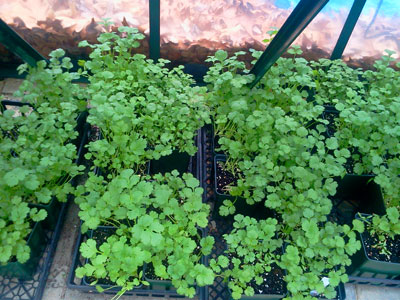What Does Certified Organic Mean?

When buying organic produce you are buying the best for you and your family. Laboratory tests prove synthetic pesticides; herbicides and fertilizers sprayed on conventional crops can be harmful and could possibly toxic effects on the body.
Besides possible health concerns, synthetic chemicals are harmful to the environment. Pesticides deplete the top soil, causing it to eventually erode. The same chemicals also affect the water supply by contaminating wells, lakes, and rivers which are sources of drinking water.
The USDA Certified Organic Label identifies produce grown and handled in accordance with USDA regulations specifying farming inputs that may be used and farm management practices and hand lying procedures that must be followed. These regulations are designed to promote biodiversity, soil fertility, topsoil retention and responsible uses of natural resources.
How Can I Be Sure What I Am Buying Is Certified?
To qualify for organic our produce must meet certain specifications:
- No synthetic chemicals may be used
- Fields must be inspected along with an annual review by the NJDA in order to maintain organic certification
- No irradiation
- No genetically modified seeds
- Proper labeling-look for the official round USDA seal AND the certifying agent which should be written out on the label
- New Jersey Department of Agriculture
(certifying agent) - Organic Certification License #PO63


